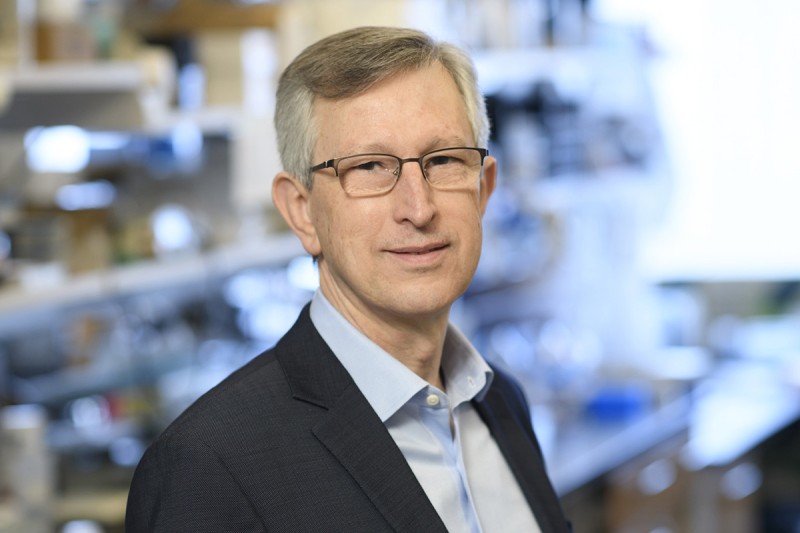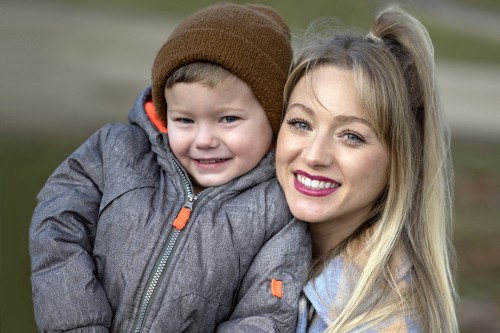
The idea that’s revolutionizing the field of cancer research is as simple as it is profound: Cancer doesn’t happen in isolation.
Cancer doesn’t arise in isolation. It doesn’t grow in isolation. And it doesn’t spread in isolation.
Therefore, cancer can’t be studied in isolation.
Cancer develops in the context of the human body, with all its many complexities. Tumor cells interact with — and change — tissue in their immediate environment, with the body’s immune defenders, and with the byways through which they travel to seed new tumors far from their site of origin.
That’s why scientists at the Sloan Kettering Institute are putting critical questions of cancer’s human environment at the heart of a new research initiative: The Marie-Josée and Henry R. Kravis Cancer Ecosystems Project.
“It is for us, as scientists and physicians, a watershed moment in cancer research,” says Joan Massagué, PhD, Chief Scientific Officer for Memorial Sloan Kettering Cancer Center (MSK) and Director of the Sloan Kettering Institute, who oversees the effort. “We are expanding the focus from mutant genes in the context of cancer genomes — a staple of research over the past decade and a great source of therapeutic as well as diagnostic insights — to include a focus on cancer cells in the context of biological ecosystems.”
To use an environmental analogy, it is shifting focus from individual trees to trees within the context of a living forest habitat, from the microbes in the soil below to the birds in the canopy above. This perspective emphasizes that cancer is not just a disease of an organ or tissue, but a disease of the whole organism that has it.
Tackling the Most Difficult Challenges in the Field
As its name implies, the goal of the Kravis Cancer Ecosystems Project is to galvanize a more systemic approach than has previously been undertaken, with the aim of tackling the most difficult challenges in the field, including that of cancer metastasis.
“Metastasis is the main reason for cancer deaths,” notes medical oncologist Karuna Ganesh, MD, PhD, whose lab at the Sloan Kettering Institute focuses on the molecular mechanisms by which tenacious cancer stem cells drive its spread. “In fact, more than 90% of cancer deaths are caused by the process of metastasis. This is a process of normal regeneration that’s gone lethally wrong. Once cells learn how to spread to distant organs, they typically become unstoppable.”
The more scientists understand about the cancer ecosystem, the more they can begin to design new therapies that bring the greater context to bear.
And the effort is intentionally interdisciplinary — bringing together scientists with expertise in a variety of specialties, from cancer genetics to immunology, from stem cells to single-cell analysis.
“For example, I study cancer in model systems,” says cancer biologist Scott Lowe, PhD. “We have other people that study cancer in patients. We have others that are computational biologists that can help us analyze big data sets.”
Coming Together To Uncover New Insights
In concrete terms, the project — made possible by a generous gift from The Marie-Josée and Henry R. Kravis Foundation — involves coming together to uncover new insight into several key biological processes.
Perhaps the most immediate is cancer metabolism: how cancer takes in and uses nutrients for energy and building blocks. Scientists at MSK, including cell biologist Lydia Finley, PhD, and cancer biologist Craig B. Thompson, MD, are learning that cancer cells can adapt their metabolism in ways that give them the capacity to reproduce endlessly.
“The emerging field of cancer metabolism is off to an exciting start,” Dr. Thompson says. “We have proof of principles at every level, from diagnosis to treatment — and work continues to understand the molecular nuances of cellular metabolism and how these processes go wrong in cancer.”
Dr. Finley adds: “Traditionally, when we think about metabolism, we think about nutrients being broken down into constituent molecules to provide energy and fuel growth. What my lab is particularly interested in is the potential for metabolites to serve as signals — telling a cell what to do, and even influencing tumor initiation.”
Also crucial to understanding cancer are the interactions between tumor cells and other cells in the immediate environment. Immunologist Andrea Schietinger, PhD, is laser-focused on understanding why immune cells often fail to stop cancer from growing in their midst. Collaborating with her are the many clinicians and translational researchers at MSK who work with patients and patient-derived tissue samples.
“Some of the important questions my lab is trying to understand: What’s wrong with T cells in tumors? Why don’t they attack the cancer? And why is it so hard to reprogram them with immunotherapy?” Dr. Schietinger says.
Answering questions like these takes a place like MSK.
“Memorial Sloan Kettering Cancer Center is really unique in its synthesis of a world-class cancer hospital with a world-class research institute,” Dr. Ganesh says.
Meanwhile, Dr. Ganesh, Dr. Massagué, and neuro-oncologist Adrienne Boire, MD, PhD, are dedicated to studying the deadly process of metastasis and the question of how cells that are shed from tumors can make their way in often hostile new environments. They are learning how metastatic cells co-opt the normal processes of wound healing to take root in new organs.
Dr. Boire, for example, has been studying the mystery of how cancer cells can grow in cerebrospinal fluid, which is deficient in the iron cancer cells depend on for growth.
“They actually reprogram themselves to gobble up all the nearby iron,” she says. “By hogging this nutrient, the cancer cells ensure they stay alive and grow while other cells — notably, immune cells that have entered the same space — are left short. And these findings point to a possible strategy for treatment.” Also studying how cancer hijacks normal processes is developmental biologist Anna-Katerina “Kat” Hadjantonakis, PhD. “At a fundamental level,” she says, “we need to understand how cells normally behave to understand how they misbehave during disease.”
In fact, the more scientists learn, the more they are realizing that nearly every system in the body — from the endocrine system to the nervous system to the digestive system — can affect cancer growth. With that knowledge comes the hope that each of these systems could one day be harnessed against cancer.
“Immunotherapy has shown us the tremendous power of treatments that use the immune system to attack tumors,” Dr. Massagué says. “We believe that new findings that emerge from the Kravis Cancer Ecosystems Project will allow us to leverage other parts of the ecosystem to the same end.”
Alan and Sandra Gerry are longtime supporters of metastasis research at MSK through The Alan and Sandra Gerry Metastasis and Tumor Ecosystems Center, providing a basis for much of the research highlighted here.
Dr. Boire holds a Geoffrey Beene Junior Faculty Chair.
Dr. Ganesh is a Josie Robertson Investigator.
Dr. Hadjantonakis holds an Alfred P. Sloan Chair.
Dr. Lowe holds the Geoffrey Beene Chair.
Dr. Massagué holds the Marie-Josée and Henry R. Kravis Chair.
Dr. Schietinger holds the Catherine and Frederick R. Adler Chair for Junior Faculty and is a former Josie Robertson Investigator.
Dr. Thompson holds the Douglas A. Warner III Chair.
